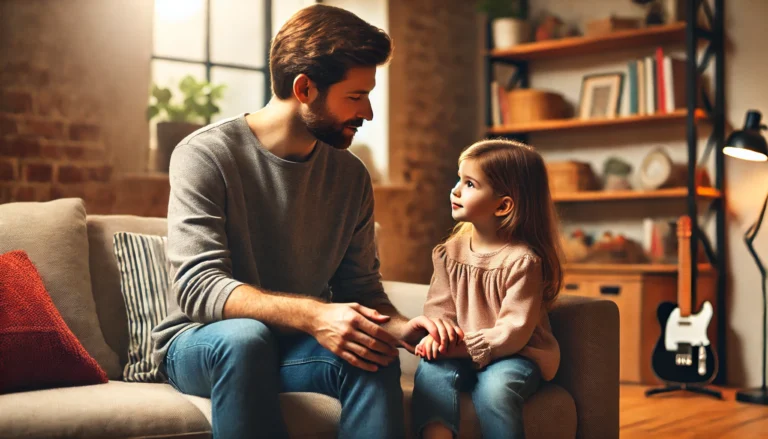Embracing a Simpler Lifestyle: Financial Freedom, Mental Well-being, and Mobility
Achieve financial freedom and mental well-being through intentional living, minimalist choices, and passive income strategies that let you work less and live more.
Have you ever thought about getting away from your work permanently? I am not talking about retirement. I am talking more about choosing to change what you do for income and focusing more on traveling and living a healthier lifestyle. This has been rattling around in my brain for several years, but recently (due to a PTSD diagnosis) I have been really starting to set things in motion.
The Mental Health Benefits of Simplifying Life
For me, living a simpler lifestyle isn’t just about cutting back on expenses—it’s about creating space for peace, financial security, and the freedom to actually enjoy life. Clutter, both physical and mental, adds stress that we don’t always realize is weighing us down.
Don’t just take my word for it. Studies show that too much stuff can lead to overwhelm and anxiety (Forbes). Research also suggests that when you strip life down to what actually matters, you gain more control, which boosts mental well-being (Journal of Environmental Psychology). Prioritizing experiences over possessions and building financial stability isn’t about deprivation—it’s about designing a life that feels fulfilling, balanced, and free from unnecessary stress.
While I understand that this is not for everyone, I wanted to share this journey with you so that you could decide for yourself if it is right for you. This is a change for me and my family. But it is not as extreme a change as going full VanLife would be. I have a ton of respect for people who can drop everything and take on a full minimalist life. It’s just not for me. Who knows, maybe in the future, when my girls have grown and moved on with their lives, I will consider it.
Creating Income Through Writing and Cash Flow Investing
One way to achieve this is by making an income through writing and cash flow investing. By generating revenue from writing—whether through books, blogs, or freelance work—you can create a steady stream of income while doing something you love. Why write, you may ask? For me, it allows the creative side of my brain to think and work. This makes me feel better and less drawn down by everyday life.
This feeling is also scientifically backed. According to the American Psychological Association (APA), expressive writing has been shown to offer several psychological benefits. Writing about personal experiences can help individuals process emotions, leading to reduced stress and anxiety. Regular journaling has been associated with enhanced mood and emotional well-being. Studies have found that expressive writing can even lead to improved immune function and reduced blood pressure (Child Mind Institute, Child Mind; APA, APA Monitor).
Passive Income Strategies: High-Yield Dividends and Options Trading
Pairing this with high-yield dividend investing and selling options provides another layer of financial security, allowing you to build wealth passively over time. Studies suggest that dividend-paying stocks historically provide stable returns and lower volatility compared to non-dividend stocks, making them a reliable income source (Investopedia).
Covered call strategies can also enhance returns by allowing investors to collect premiums on existing stock positions, essentially renting out their stocks to generate passive income while maintaining ownership, an approach widely used in conservative income-generating portfolios (Forbes).
As long as you are adding dividend-paying stocks that you can sell Covered Calls against, you will be able to increase your income slowly month over month. Doing this will allow you to work less and focus on life’s more important things, like family. This approach lets you enjoy life before retirement by spending more time on passions and less time working.
Minimalist Living and Financial Independence
A key component of this lifestyle is minimizing unnecessary expenses, including housing. Research supports that adopting a minimalist lifestyle can lead to significant mental health benefits. According to Forbes (Forbes), reducing material possessions and simplifying one’s environment can decrease stress and anxiety levels by eliminating clutter and focusing on essential needs.
Again, as I said before, I am not choosing to get rid of my living arrangements for a VanLife existance. Instead I am choosing to lower my cost of living by lessoning what I expect for my house. Most people do not need the million dollar house right in the middle of town. They want it. However, once you obtain it, the costs of your wants come with higer stress and anxiety.
If on the other hand you were to look into land that is 15 to 20 minutes out of town and build a smaller house that suits your families needs, you will see that the cost is much lower than you may expect. People will pay for their wants and convienience, but if you can step just outside of that convienience bubble (often times 15-20mins from town) the prices drop dramatically. By choosing this lower cost you are allowing yourself to budget in travel the way that you want to. For me thats taking a slower approach and seeing life through a windshield. I am choosing to lesson the size of the house in order to expand the size of the windshield to view the world through.
A study published on PubMed Central (PubMed) suggests that a minimilistic approach like this promotes a sense of autonomy and competence, contributing to improved well-being and life satisfaction. These findings align with the idea that by simplifying your financial obligations—such as living in a small home or a high-top van—you can reduce stress and prioritize personal fulfillment over material accumulation.
The High-Top Van Lifestyle: Freedom to Travel
A small house provides the essentials without the burden of excessive mortgage payments, while a high-top van offers the ability to travel freely, explore new places, and work from anywhere. Research from the Journal of Environmental Psychology suggests that smaller living spaces contribute to a stronger sense of control and reduced financial stress, ultimately improving overall life satisfaction (Journal of Environmental Psychology). This aligns with findings that increased mobility and experiential living can lead to greater happiness and reduced material dependence (Psychology Today).
While I do not intend to fully commit to the VanLife, I do intend to purchase a van and build it to our needs so that we can travel a lot more. This will include 4 seats (for my wife, daughters, and I), a bed for my wife and I, and a pop-up roof for my two daughters to climb up under and sleep in. It will also definitely include a space for my service dog to sleep under my wife and I’s bed.
Once all of this is installed, we will look at creating an office space so that I can work on the road, and then a fridge, small stovetop, and a sink. Since we won’t be living in it, I doubt there will be a need for a shower/bathroom. The final touches will include as much counter space and storage as we can fit in and solar panels so that I can keep my laptop and electronics charged. The goal is to make it functional first, then focus on comfort. If we can add livable options like a shower and bathroom at the end, it will be an extra luxury.
Intentional Living: The Key to a Simpler Life
Ultimately, the goal for a simpler lifestyle isn’t about sacrifice—it’s about intentionality. By reducing material dependence, simplifying financial obligations, and focusing on experiences over possessions, you create more room for fulfillment and joy. By focusing on mental health, sustainable income, and financial stability, you can create a life that aligns with your values and gives you the freedom to live on your own terms. What small changes can you make today to start designing a life of freedom and fulfillment?



